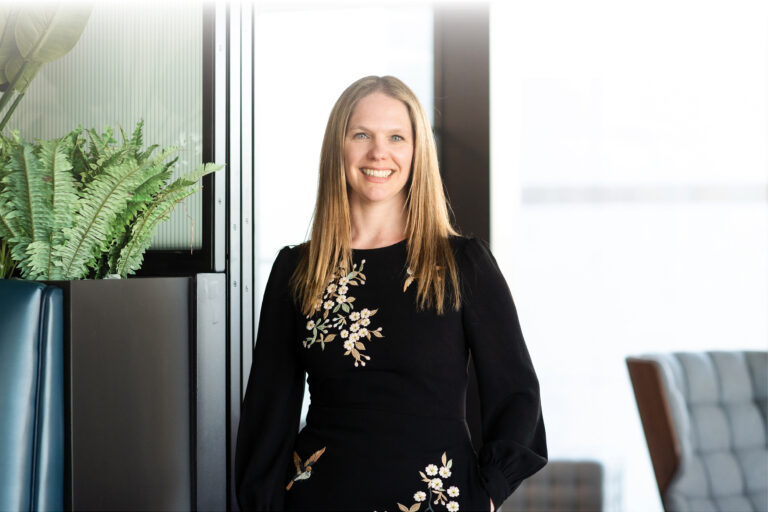

MP: Welcome, Daniel. Over the years, as a Partner and patent attorney at Boult you have developed a particular expertise in the food and beverage sector and you’ve written extensively on this subject, including recently: “Regulatory innovation”, “Low energy coffee” and “‘Clean label’ foods”.
MP: How long have you been specialising in this technology area of IP?
DW: I joined Boult in 2007 and drafted my first food patent application relating to coffee in 2008. So for quite some time. I’ve continued to work extensively on coffee products, but also on a range of other food products including: gum, candy, biscuits, cheese and cakes. I’m typically the point of contact when clients have a new product to protect and launch, or a road-blocking patent to oppose. IP in the food and beverage area often includes not only the food/drink itself, but also IP for the packaging and any materials involved, so I am often working with colleagues with relevant expertise across the Boults team.
MP: One thing I know you love doing – and indeed excel at doing – is drafting.
DW: That’s right. I really do enjoy drafting new patent specifications for clients. Not just for food products either. I regularly draft 20 – 30 patents a year and am likely working on three to four at any one time. Last year, we drafted 25 drafts for a single client, though admittedly, I didn’t do them all. We have fantastic team here. My colleague, Jordan Waters, is a stunningly good drafter.
MP: You trained him well!
DW: Both of us were recipients of the UK drafting prize for the highest mark in the UK drafting exam (FD2) during our respective training. Although that was long enough ago that feels like bringing up a childhood 25m swimming badge!… But it is relevant and evidence of the drafting strength we have in the firm.
MP: Others at our firm have won that drafting prize, too – Matthew Spencer, Jo Pelly, Joanna Peak and Jade Watt come to mind.
DW: They did. I think it’s evident that we really value drafting in the firm. Some of our competitors predominately handle agency work, rather than drafting themselves, but that misses out on developing a lot of really useful skills and strong relationships with our clients. For me, actually getting involved in drafting is something I find fun, but it also feeds into everything else we do. There are nine cases now that I have drafted, where not only have I prosecuted them through to grant, but also defended them in Opposition/Appeal proceedings before the EPO. Of those, I have successfully defended six and the remaining three are still ongoing!
MP: 100% success so far then – you can’t get better than that. Do you find that defending a patent you’ve drafted adds stress at the defensive stage, or is it a benefit as you know the patent inside out?
DW: The benefits outweigh the stress. If you have a role in writing the specification, you’ll understand inherently what the wording has been used to mean within the patent because you’re the author. That really helps you to present a clear argument at a hearing. Also you’re thoroughly familiar with any data that the patent contains, so there are fewer surprises.
There’s a positive feedback loop between drafting and opposition work. If you’re both the defender and author of a draft, you’ll understand exactly why your drafts survived, where or why your draft was attacked, and/or where it was most and least vulnerable during a hearing. This means you can work that knowledge into new drafts to minimise vulnerabilities and cause your client’s competitors more problems!
MP: Is it fair to say that contentious work is a significant part of your practice in the food and beverage sector?
DW: Yes: the food and beverage sector seems to be opposition and appeal heavy. It’s a competitive space where new products are launched and marketed constantly. Trends can be short-lived and it can be very competitive to develop innovative products to meet a new niche or consumer need. This can result in a lot of competing products reaching market at the same time.
Amongst the big companies there is a regular stream of mergers and acquisitions, meaning there’s always new companies doing new things. That, in turn, means lots of patent filings. It’s also exacerbated as, in the food and beverage area, a lot of innovation is driven by smaller companies. If you compare that with the more traditional chemicals sector, in which I also work, as an example: for a new chemical invention, you might need a big lab and a hefty research budget in order to get a product developed and to market. In the food and beverage industry, anyone can drive innovation, often irrespective of size. Take, for example, microbreweries. It doesn’t take much capital or equipment comparatively to start producing food and beverage products and to start to innovate. Accordingly, in the industry as a whole, there’s a lot of interest in research and development, and a lot of interest in understanding the market ahead of product launches. That breeds a lot of contentious work, as multiple products seek to meet changing customer wants, but also makes Freedom to Operate (FTO) advice really important for clients.
MP: FTO work does seem to also be a particularly important part of your work.
DW: It is. Both drafting and FTO are key parts of my work. They both go to the heart of what your client is doing, and their aspirations for the future. When you do a good job for your clients on what matters to them, there’s real satisfaction.
FTO is always a cycle – clients aren’t necessarily initially keen to engage in it, as it’s expensive, until something goes awry, such as getting sued. Then they run FTO checks on everything for a little while until the immediate worry has worn off. And so the cycle repeats itself.
I am lucky to have in-depth experience of FTO and have lectured on the topic all over the world. Conducting and analysing the results of an FTO search can be highly complex: commercialising a product or process is critical for a client and finding a way to do so without infringing on others’ IP rights can be a challenge. I always focus on getting the very best for my clients which, I feel, reflects the culture here at Boult.
The reasons why different clients engage in FTO checks can be quite varied. The bigger players have significant portfolios and are looking to launch new and tweaked products on a consistent basis and they are very aware of what their competitors are doing. They are looking to minimise risk – if they are required to pull products from shelves because of a claim, it’s a big hit to revenue, having to destroy stock, and to their image as consumers will definitely notice a sudden absence. They also want to avoid having to settle with competitors as that can be very costly.
However, we do also see smaller clients coming to us for their first innovative product, which is often business critical. A request to do a FTO check for smaller clients often starts with a worry – a concern that they might be infringing on an existing patent (perhaps they’ve received a note to “stop what you’re doing” from an established competitor), or it starts with an opportunity in that they’re being clever with a new product or approach. An FTO search can alleviate that concern or demonstrate the potential of their innovation.
Also, if a client is looking to run an FTO search, it’s always an option to try and protect something for the client too. The area where they are worried there might be competitor patents is also a place they could get their own – FTO often feeds into more drafting. Once those patents are in place they’re at least a tool for cross-licensing, as well as all the other normal benefits a patent brings.
MP: That’s true – patents can provide a really useful measure of inventive activity for smaller clients and start-ups.
DW: Yes. It also demonstrates to potential investors the levels of activity at the firm which is additional bonus.
MP: What kinds of clients do you find yourself supporting in this area?
DW: It can be incredibly varied. The breadth of the industry means the direct interests of clients we work with can be very different. There isn’t too much crossover between an alcohol brand and a pet food manufacturer, even if it’s the same “industry”! It therefore means we may be able to take on new clients without direct conflicts arising. We’re in a great place to build our practice and have the expertise to support major new clients: Rohan Setna, Neil Thomson, Joanna Peak, Jordan Waters, Olivia Murray and Anna Jones are just some of our excellent team. We get work done by the right people at the right level.
MP: What trends do you typically see in your work in the food and beverage industry?
DW: In recent times, a good chunk of innovation in the industry has been driven by regulations. For example, the impact of high-fat, high-sugar taxes and regulations mean producers have raced to find healthier alternatives for their products. If they don’t then they are subject to more tax and are at a price disadvantage compared to their competitors. Clean labels are also an important consideration.
MP: Clean labels..?
DW: Replacing ingredients with natural alternatives in produce to ensure food labels don’t contain things that consumers might not be trusting of – additives, e-numbers, preservatives and flavourings.
Sustainability and general product improvements are always an important source of innovation. There is a considerable interest in that aspect of the market and it has been growing rapidly in recent years.
MP: To bring our conversation to a close, what are you most proud of in your career?
DW: Well if I thought longer on this it might be different… but… I’ll say back in 2009, one of our major international food clients was sued in relation to a chocolate product. During the preparation for the hearing I went all over in search of evidence: to the British Library, to the International association of Cocoa Growers in Holborn and all manner of bookshops.
Eventually, I found a document, published around 1890 – “The Italian Confectioner”. It was really obscure, but on the basis of that that evidence our client won the case. I got a call from the client on a transatlantic flight when the verdict dropped, thanking me for the win – that was a great start for me.
For a more recent example, I successfully defended a patent at Opposition/Appeal proceedings before the EPO, a success which my client later told me had made their “top highlights” slideshow of 2024. It was nice to see that the win was meaningful to the client. That’s the job satisfaction: having a happy client who understands the process and – importantly – hasn’t been sued.
MP: I’ll come to you for drafting!
DW: Well, it is my favourite part of the job. Working out what the inventive kernel of a product is, determining what is protectable and then crafting the protection for it. There’s a satisfaction there.
MP: Thanks Daniel!
If you would like to read more about Daniel and his practice, his profile can be found here and you can contact Daniel at dweston@boult.com. More information on the work of our food and beverage practice can be found here. Until next time, thanks for reading our conversation with Daniel.